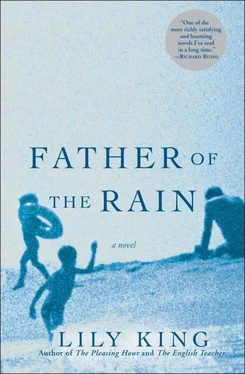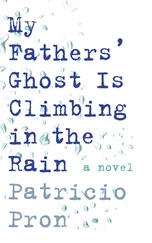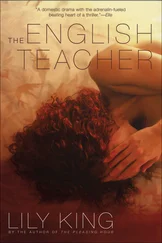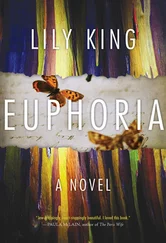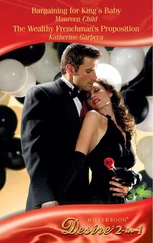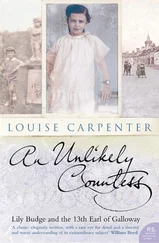I wish I could go watch like I used to with Patrick and Mallory, straddling our bikes outside the fence, sometimes for hours at a time, mesmerized by all the trailers and what came off of them, the enormous limbs of rides like the Scrambler and the Salt ‘n’ Pepper Shaker, the horses for the merry-go-round on their poles, the big crowns of lights and mirrors, upholstered seats, little boats and planes. Once a boy about our age brought us some fried dough from his family’s stand a day before the carnival actually opened. We devoured it and asked him questions about his life, if he got to ride for free, what was his favorite ride, his favorite food, his favorite town. “Not this one,” he said. “Rich towns like this keep all their pennies up their asses.” We laughed hard and a couple of other boys came over, but that caught the attention of a big guy attaching the fake balcony to the haunted house. “Hey,” he called down to us, “don’t harass the kids. They got work to do.” Rich towns like these, Pennies up their asses , and Don’t harass the kids all became refrains for us for years.
I sit on the bench outside the library until the clock strikes eight, then I cross the street and wait in the car until my father comes out. I recognize hardly any of them from the night before, but again they all make a point of saying goodbye to my father.
“All righty then,” he says when he gets in. “Home again, home again, jiggety jig.”
“How was it?’ I think I can risk it, given his good mood.
“Good.” He looks at the door of the rectory.
I can’t tell if he’s faking it all for me.
“Not too much God?” This is one of the things I’ve been worried about. My father hates God almost as much as he hates Democrats.
“No.” He’s still looking out the window, away from me. “To each his own.”
To each his own? I think of quoting this to Garvey and have to clench in a laugh.
The light is out at Lighthouse Books.
“I walked down here while you were in your meeting. To the bookstore.”
“Oh yeah? Never been in there. Nice place?”
“Small, but good books.”
“That poor kid.”
“What do you mean?”
He shakes his head. “With a mother like that.”
“I like his mother.”
“Yeah, well, let me advise you right now, stay away from her. She’s got a big screw loose in her head.”
We pull into the driveway, and I realize I forgot to check the sign in the park that tells the day the carnival will open. I hope it’s before I have to leave.
I have Dad cook his own pork chop and show him how to poke holes in the potato before baking it.
We eat by the pool. The dogs swim. When we’re done, I ask him how he feels.
“Good,” he says, in his new preemptive way.
I can tell he doesn’t feel good. His right leg bounces incessantly, like Garvey’s, his eyes flit from thing to thing, and his skin is gray, not the purple gray it gets after many drinks but a pale ash. He smokes one cigarette after another, their tips trembling. I got a book out of the library to help me understand what he might be feeling, but all I learned was that each body reacts differently to the sudden absence of alcohol.
“I know it has to be really hard right now.”
He jiggles his leg. Many times he looks at me like he is going to say something and stops. Finally he says, “I’ll tell you what. I need you to sweeten the deal. I do this for you, and you come to the club with me on Saturday morning, just to hit a few balls.”
“First of all, you are not doing this for me. You are doing this for you. And second, we made our deal. I stay for six more days, and you don’t drink.”
“If I make it to Saturday, will you come? I can’t miss another week.”
I point to the court in his backyard. “We can play right there.”
“I like playing at the club. I like clay.”
“Dad, I haven’t played tennis since I was sixteen.”
“Please?” He needs me in case Catherine is there. He needs someone beside him when all eyes are on him. “Please, elf?”
It won’t kill me to be for an hour the daughter my father has always wanted. I can give him that memory before I leave. But the idea of going up the long private drive to the white columns of the brick clubhouse is almost enough to make me wish my father won’t hold up his end of the bargain.
But he does. After probably more than forty years of vigorous daily drinking, my father goes six days and six nights without alcohol. On the phone Jonathan suggests that he could have a stash somewhere. But I know the difference between my father drunk and my father sober. I know the sated smugness of the early drinks, the agitation that turns to wrath of the next few, and the slack yellow-eyed hollowness at the very end. I’ve also cased the joint. I’ve rummaged through his closets and cars, through the basement, attic, shed, and garage. Nothing. And I stay up late, hours after he does, hearing only the heavy, steady throttle of his snore.
On Friday night, after his meeting, he takes me to the Mainsail for dinner. It’s the only fancy restaurant in Ashing, with a dining room that overlooks the harbor. The entrance is a dock that rises up from the parking lot and makes everyone’s footsteps ring out. I wear a blue dress, wrinkled from days in my hot car. My father is nervous and cups his hands tight as he walks.
“Well, hello to you,” he say to the wooden statue of a boy holding a net with a wood fish in it. “That’s probably a six-pounder you got there.”
He’s worried Catherine will be here, but I’ve reassured him that she knows this is his restaurant, his territory, and she won’t dare. I hope I’m right.
Harold, the bald obsequious manager who has been stationed at the podium in the entryway all my life, bows to us. “Good evening, Mr. Amory. Good evening, miss.”
“Oh for chrissake, Harold, it’s Daley.”
He bows again. “Good evening, Miss Amory.”
“Ms., if you wouldn’t mind.”
My father lets out a small groan.
“Oh, did you get married?”
“No, but please, just call me Daley.”
“I will do that,” he says, lifting two long leather binders out of the holder on the side of his podium, his lips tightly pinched, clearly displeased by how unsmoothly this interaction has gone.
“Daley,” my father says when we slide into our chairs beside the enormous window, “please don’t go around trying to paint this town Commie red. Someone calling you miss is not trying to harm you in any way.”
“I don’t care if they’re not trying. It does harm me.”
“Why?”
“Because the terms Miss and Mrs. are like branding cattle. No one needs to know I’m unmarried.”
“Yes, they do. People want to know these things.”
“There’s this tribe in New Guinea where the available women are given a suffix to their name that literally means tight vulva and the taken women are given a suffix that means floppy vulva . Should we do that, more to the point?”
“You are making me sick to my stomach, for chrissakes.” But he is amused. He is having fun.
“Here you are, Mr. Amory.” Harold drops a vodka martini on the rocks with two onions and an olive beside my father’s right hand. “And what can I bring your lovely daughter?”
I can feel the vibration of my father’s jiggling leg on the wooden floor beneath us. I can feel the attraction between him and the martini, and his restraint, everything it takes to not get that martini down his gullet and into his blood system. He lifts it up and hands it back to Harold. “Sorry about that, sir. She’s keeping me clean tonight.”
Harold glances at me— haven’t you made enough trouble already? — and then sympathetically back at my father. “Excuse me, Mr. Amory. I shouldn’t have presumed.”
Читать дальше
